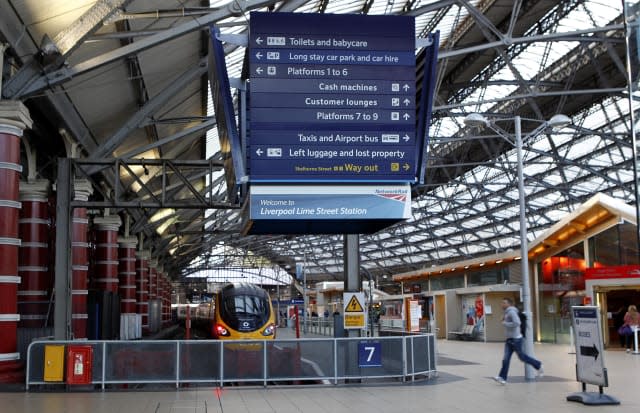'Revolutionary' investment plan for northern transport

A strategy to revolutionise the North of England's transport links over the next 30 years has been unveiled.
Seven "corridors of opportunity" have been identified where the movement of people and goods across the region could be improved.
This includes the route from the Port of Liverpool to the Humber ports, via Cheshire, Greater Manchester and the Sheffield City Region, and between non-carbon energy and research centres in Cumbria, north Lancashire, North Yorkshire and the North East.
Economically, the North is underachieving. The economic value per person in the North (GVA) is 25% below England's average. We want this to change. #TransformtheNorthpic.twitter.com/f222k1FFf7
-- Transport for the North (@Transport4North) January 11, 2018
Boosting road and rail links could deliver a £100 billion economic boost and 850,000 additional jobs by 2050, according to Transport for the North's draft plan.
The strategy, which has been put to public consultation, also outlines more detail on the vision for Northern Powerhouse Rail.
It features a new line between Liverpool and the HS2 Manchester spur via Warrington, increased capacity at Manchester Piccadilly and a new link connecting Manchester and Leeds via Bradford.
Think tank IPPR North claims £1,943 is being spent per person in London on current or planned transport projects, compared with just £427 in northern England.
Transport for the North is set to be given statutory status in April, meaning its plans must be formally considered by the Government when decisions about transport investment in the North are made.
It says its proposals would cost an additional £50 per person per year in addition to expected spending.
The group's chairman, John Cridland, said: "Transport for the North's vision is of a thriving North of England, where modern transport connections drive economic growth and support an excellent quality of life.
"For the first time, civic and business leaders and transport operators are speaking with one voice on transport to make sure the North fulfils its potential.
"Our plan proposes a revolutionary investment programme that will make it possible to travel to high-quality jobs.
"This is an ambitious programme that will improve our roads and railways, and will also drive a sea change in skills development in the North and ensuring we meet that historic gap in investment."


